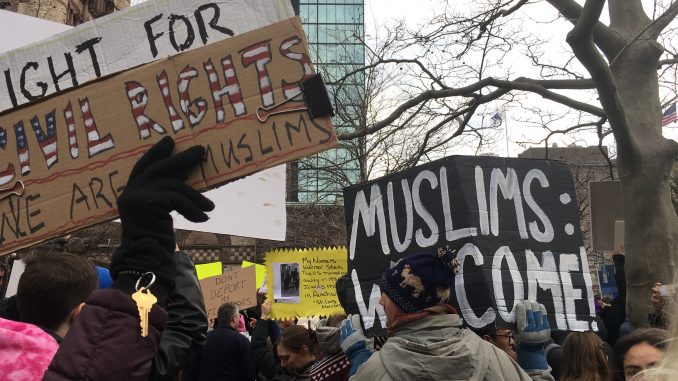Healthcare professionals in the United States are worried by the impact that the executive order by President Donald Trump barring access in the country to nationals of seven predominantly Muslim countries is having on hospitals and research centres, after many reports of clinicians and researchers prevented from re-entering in the United States despite having a perfectly legal visa, and their entire life, in the US.
«There is a lack of clarity in all of this» complained Dr. Atul Grover, executive vice president of the Association of American Medical Colleges (AAMC), whose membership includes all 147 accredited U.S. medical schools and nearly 400 teaching hospitals, health systems and academic medical centers. According to him, the executive order impacts patient care of hundreds of thousands of patients, since almost 300 nationals from the seven countries involved (Iran, Iraq, Libya, Somalia, Sudan, Syria and Yemen) have applied for medical residency in a US hospital, and they would all be seeing thousands patients each.

According to the AAMC, one-quarter of physicians practicing in the U.S. come from abroad, and they seem to offer the only solution to the current nation’s shortage of doctors: the scarcity was already expected to worsen as the U.S. population ages, more people gain health coverage and policymakers promise greater access to medical care, rising to between 61,700 and 94,700 missing physicians by 2025.
Many professionals were affected by the ban, including doctors and researchers: Dr Suha Abushamma – raised in Saudi Arabia but born in Sudan – was stopped on her way back to the Cleveland Clinic, where she was attending a residency program in internal medicine. She was confronted by federal agents who forced her to decide rapidly whether to «leave the country voluntarily and withdraw her visa» or be deported. Since deportation would imply a 5-year ban – and a permanent black mark on her immigration record – she chose to «voluntarily» return to Saudi Arabia, despite her H-1B visa for workers in «specialty occupations»: «I’m only in this country to be a doctor, to work and to help people — that’s it» she told ProPublica. «There’s no other reason».
Many other professionals – including some with double passport one of which from the European Union – are reported to be kept away from their house, bank account, workplace, patients, friends and research projects in the US. Those who have a connection with the seven countries targeted and who currently are in the United States are being advised not to leave, even though for many researchers this implies missing important conferences and meetings abroad. The UK journal Nature «spoke to more than 20 researchers affected by the new policy, who described their feelings of fear, shock and determination. Some asked to remain anonymous for fear of retaliation by the US government».






Leave a Reply